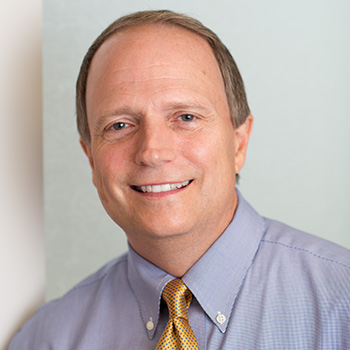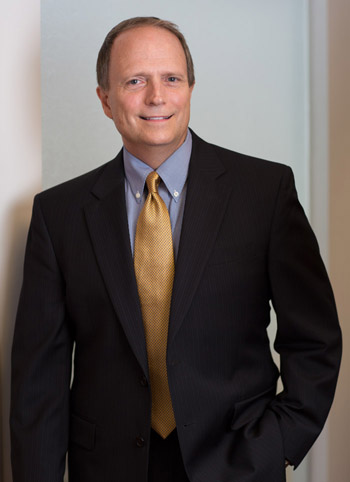The intersection of art and science

Scott Harris, CFP • Tampa, FL
Money Advisors Group • Brokers International Financial
Services LLC
Read full biography below
As intensive data-gathering has informed his investment advisory process, active third-party money management has emerged as a frontrunner in client portfolio solutions.
Proactive Advisor Magazine: Scott, talk about your early experiences in the financial-services industry.
After college I was searching for a meaningful career direction and through pure happenstance met and was hired by an individual at a small broker-dealer primarily involved with oil, gas, and real estate limited partnerships. We did a lot of work in Florida, and I fell in love with the area and eventually moved down here.
Later I worked for American Express/IDS and CIGNA Individual Financial Services, both of which were very professional, buttoned-up organizations. I learned a tremendous amount there in terms of the full formal financial-planning process, with these two companies being very data-driven and employing state-of-the-art models for financial, retirement, and estate planning.
Around this same time, I earned my CFP designation and, frankly, felt very qualified to strike out on my own. With several other advisors, I started Money Advisors Group, and now I am a principal owner along with one of the other original founders.

Has your investment philosophy evolved since those early days in the business?
This is something I have thought about often. Back in the 1980s and 1990s there were some major blips in the markets, but by and large it was pretty smooth sailing for many years. I was trained in classic asset allocation, more or less a style-box type of approach. We performed exceptional due diligence when it came to a client’s overall picture for their investment planning. But we operated essentially from a passive investing, buy-and-hold mentality, which worked very well at that time.
When the major displacements hit the markets in the early 2000s, it was clear to our group that it was time to start looking for new investment solutions. The spring of 2000 was really a watershed moment that ultimately led to changing the way we do business with clients and how we manage money. We saw the “tech wreck” just demolish a lot of people’s goals and dreams and were determined to help prevent that in the future.
“We are very respectful of market risk. Clients need to understand that risk-adjusted return is what matters.”
What steps did you take?
Initially we developed our own system for managing client money. It was an active money-management program of sorts where we were doing the technical analysis, evaluation of sectors, and making timing decisions. Our process was intensive, and we took the challenge very seriously. Our methodology worked fairly well, and I am glad we tried it. It gives one a real appreciation for how difficult it can be to make timing decisions in choppy or non-trending markets.
But the real challenge was time management. We were spending so much time on the active money management that we really didn’t have the time to do what we do best—meet with clients and make sure they are on track in making progress on all of their planning objectives. So we reached the conclusion that you either have to be a full-time money manager yourself or you need to find top managers who could do it for your clients. We chose the latter path and have followed that ever since.
The whole third-party management system was really in its infancy in the early 2000s, and we have done an immense amount of tire-kicking over the years. We always want firms that are easy to work with, have a proven track record, and have a turnkey process for client onboarding and ongoing account management. I believe we have been successful in finding that, and our clients have been very pleased with the end result.
Our main goals here are preserving capital and earning a decent rate of return. With a lot of our clients approaching retirement, we had them positioned fairly conservatively before the recession hit, with a good percentage of money in active strategies. The combination of both factors led to our clients weathering that particular time in relatively good shape.
It highlights a key point. When we evaluate third-party active managers, it is crucial to know how they performed during down market years, especially the severe downturns. It also is important for us to have managers who can handle a variety of client profiles and risk appetites.
While most of our clients are boomers and tend toward the conservative side, we do have others who prefer more aggressive portfolios. Our managers have strategies or combinations of strategies that are appropriate for just about everyone. Still, if one is looking for market-beating alpha, that is not the philosophy we generally adopt. We are very respectful of market risk and educate clients that risk-adjusted returns are what really matters over the long term.
The crucial times for a portfolio are about five years prior to retirement and five years after retirement. If you have a major market downdraft and you participate heavily in that downdraft, you don’t have the time to recover, which can certainly affect the quality of life you have during retirement. So, the bottom line is that a buy-and-hold philosophy might be acceptable if you have a high tolerance for risk, an extremely long time frame, and no plans to touch your capital. But for clients approaching their retirement years, it is generally not an approach we would recommend versus an actively managed portfolio.
I often use the analogy of a plow horse with clients. The horse might not be flashy, but it is dependable, does not complain, and works hard during all types of conditions. We want portfolios that are going to be able to keep working during all kinds of market environments, without a lot of wild swings. While it might not appear very “flashy” to clients, what goes on behind the scenes with our managers is very sophisticated in terms of analytical tools, algorithms, and a nimble approach to managing money.
How would you describe your philosophy of working with clients?
You really have to take the time to get to know who you are working with, and then be able to understand all facets of their financial lives and their personal goals and needs. This is paramount in developing a good solid strategy for their future. I always tell people who are new to the business that this is foremost a relationship business. Until that is understood, you’re not going to be successful.
This business is a combination of art and science. I come from a data-intensive background, which is very important in the planning process. But it also takes real people skills to draw people out, identify their true objectives, and present options in a way that helps them partner in the decision-making. That approach and strategy is what our firm has been all about since we started and it has proven to be very successful for us.
 Scott Harris, CFP, began his career as a financial advisor in 1983 and is a principal for Money Advisors Group based in Tampa, FL. His client base consists primarily of high-net-worth individuals, business owners, and professionals who have special concerns in the area of tax-advantaged asset management, retirement, and estate planning.
Scott Harris, CFP, began his career as a financial advisor in 1983 and is a principal for Money Advisors Group based in Tampa, FL. His client base consists primarily of high-net-worth individuals, business owners, and professionals who have special concerns in the area of tax-advantaged asset management, retirement, and estate planning.
A firm believer in staying current in the field, Mr. Harris regularly attends seminars on cutting-edge financial planning strategies, and also participates in workshops that analyze market conditions and economic trends. He shares his knowledge and insights by conducting his own seminars throughout the Tampa Bay area on a variety of investment and planning topics.
Mr. Harris has been a featured guest on the Bay News 9 Financial Report, and was the co-host of the television show, “The Money Advisors,” for seven years. He also co-hosted a local radio show, “Safe Money Strategies.” He has been featured in publications such as The Maddux Report, Florida Trend Magazine, and Office.com and has served as a board member for several non-profit organizations throughout the Tampa Bay area.
A native of Wisconsin, Mr. Harris graduated from Carthage College with a B.A. in liberal arts. He says he treasures the rich and diverse education he received there, “which helps to this day in working on the people-skills side of the business.” During the early part of his career, Mr. Harris worked for several prominent financial-services firms where he gained “excellent training and experience in all of the key areas of financial, retirement, and estate planning.” He earned the CFP designation in 1992.
Mr. Harris and his wife reside in Tampa, where they enjoy “travel, working out, going to the beach, and a number of outdoor activities on postcard-perfect days.” He is also a high-performance auto enthusiast, participating in rallies and autocross.
Disclosure:
Scott Harris is an investment advisor representative offering securities and advisory services through Brokers International Financial Services LLC. Member SIPC.
Photography by Steve Widoff


